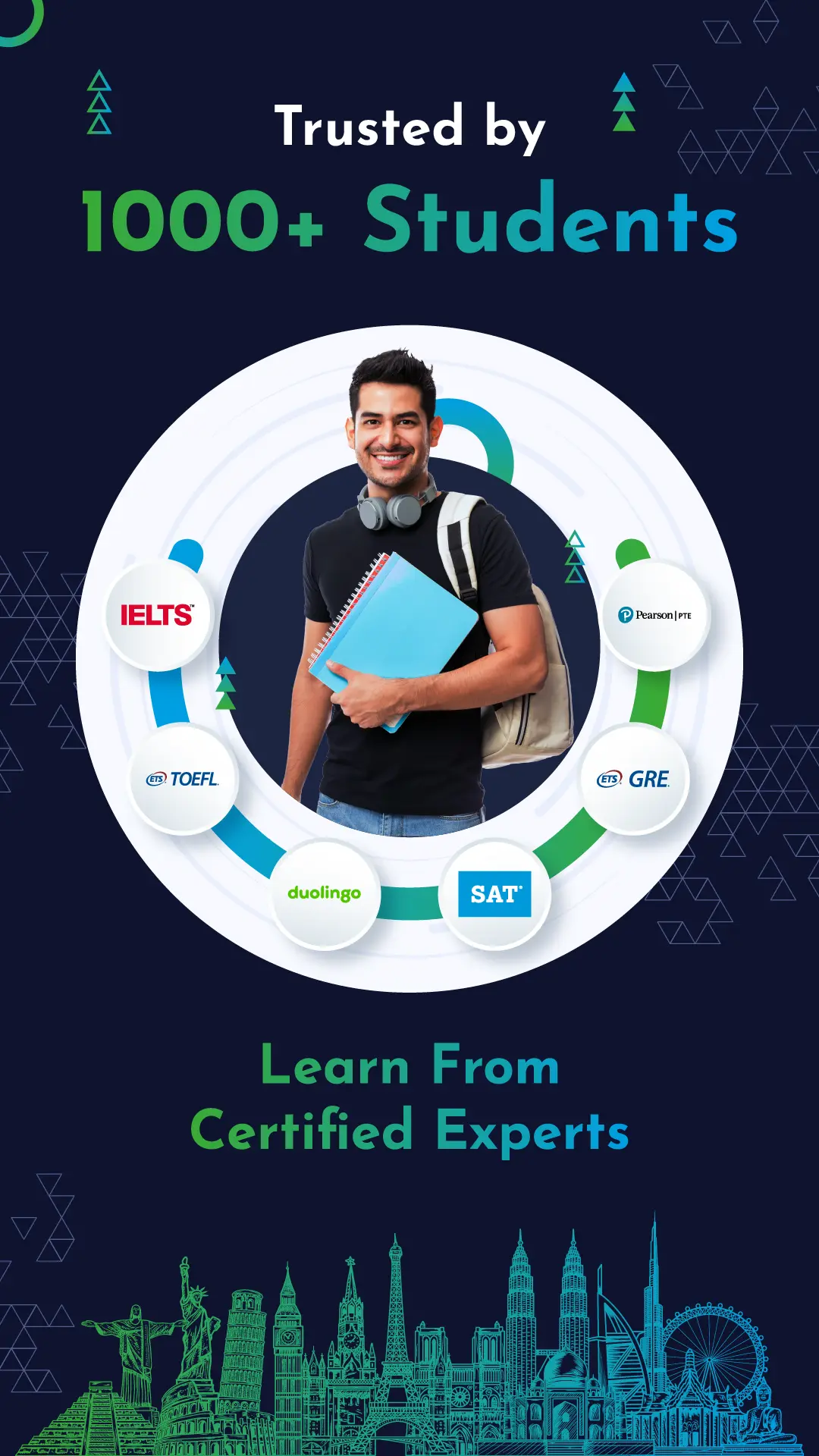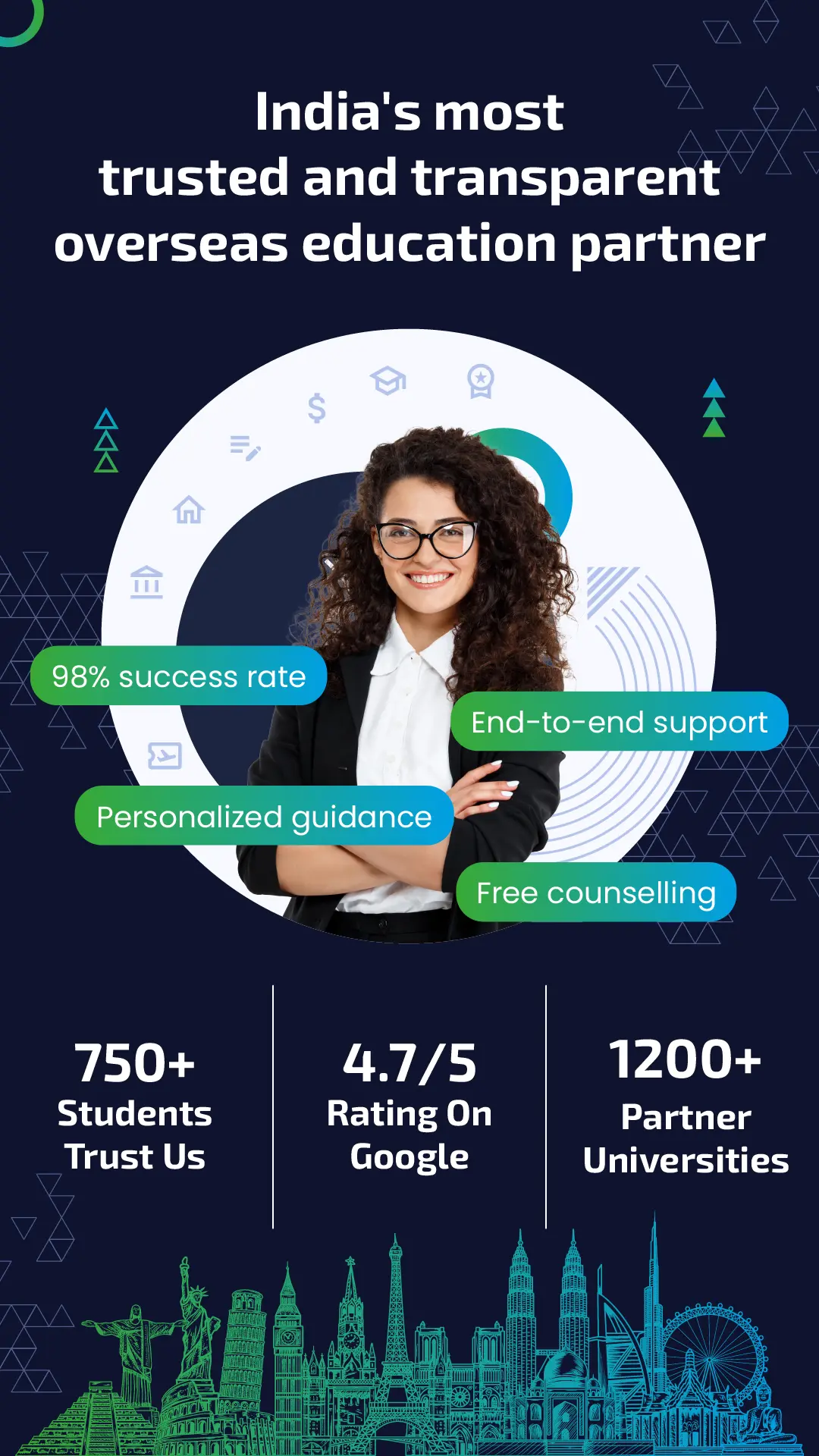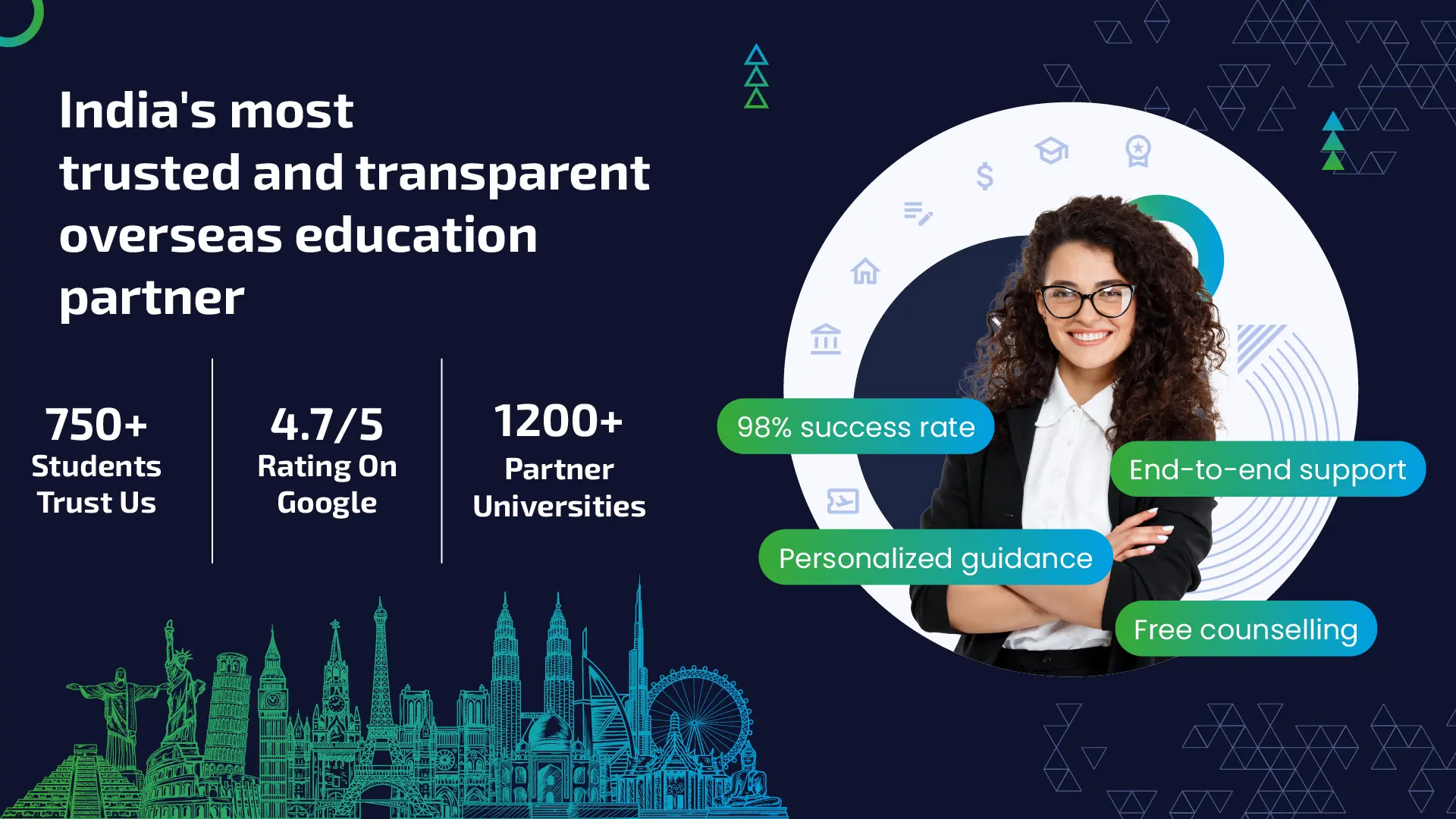Why the January 2026 Intake in the USA Could Be Your Smartest Move Yet
Think the Fall intake is your only chance? Think again. The January 2026 Intake USA is fast emerging as a hidden opportunity for Indian students who want to skip the crowd and still land in top-ranked programs. Fewer applicants during the January 2026 Intake USA mean faster decisions, smoother admissions, and more attention on your application. You graduate quicker, access the same great internships, and enter the job market when competition is lower. January 2026 Intake USA isn’t your second-best—it’s your chance to outsmart the system and get a head start on your global career. Curious? You should be..
Life in the USA as an International Student
Life in the USA is much more than just academics. Expect vibrant campuses, multicultural classrooms, and plenty of student-led activities. Indian students thrive here, with active Indian associations, cultural events like Diwali celebrations, and easy access to Indian food. You’ll also benefit from excellent mental health support, part-time work opportunities, and career development services. Whether it’s studying or exploring, the USA offers a wholesome experience.
Tuition Fees & Cost of Living in the USA (January 2026 Intake)
Tuition Fees:
- Public Universities: $15,000 – $25,000 per year (affordable, high-quality education)
- Private Universities: $35,000 – $60,000 per year (premium programs, more scholarships)
Living Expenses:
- Smaller Cities (e.g., Dayton): $12,000 – $15,000 per year (budget-friendly lifestyle)
- Major Cities (e.g., San Jose, New York): $20,000 – $25,000 per year (higher rent & transport costs)
Other Essential Costs:
- Health Insurance: $700 – $1,200 per year (mandatory for visa)
- Travel & Personal Expenses: Around $2,000 – $3,000 annually depending on lifestyle
Advice: Plan early, choose your city wisely, and explore scholarships to make studying in the USA more affordable!
Scholarships & Financial Aid for Jan Intake
Many US universities offer scholarships even for the January intake, including merit-based awards, tuition waivers, and graduate assistantships. Some scholarships are automatically considered with your application, while others require a separate application. Early applicants have the best chance to secure funding, so applying on time can reduce your financial burden significantly.
Which Course Should You Choose for the USA (January 2026 Intake)
High-Demand Courses:
- STEM Fields: Data Science, Artificial Intelligence, Cybersecurity, Software Engineering (eligible for 3-year OPT)
- Business & Management: MBA, Finance, Business Analytics (strong post-study employment opportunities)
- Healthcare & Sciences: Public Health, Biomedical Sciences, Biotechnology (growing demand in healthcare sectors)
- Emerging Fields: Sustainability, Renewable Energy, Environmental Management (future-proof industries)
Why Choose Wisely: Selecting courses aligned with industry growth ensures better job prospects, higher salaries, and long-term visa pathways in the USA.
Key Entry Requirements for January 2026 USA Intake
1. Academic Qualification:
- Bachelor’s degree with 55–60% minimum (competitive programs may ask for 65%+).
- Focus on good performance in your major subjects.
2. English Language Proficiency:
- IELTS: 6.5 overall (no band below 6.0)
- TOEFL iBT: 80+
- Duolingo: 105+ (accepted by many universities)
- MOI: Rarely accepted; verify with your university.
3. GRE/GMAT:
- GRE: Optional for most, required mainly for STEM/Engineering/Data Science.
- GMAT: Needed for MBA/Business, with some waivers available.
4. Statement of Purpose (SOP): A clear, goal-focused SOP explaining why this course/university and your career plans.
5. Letters of Recommendation (LORs): 2-3 LORs from professors or professional supervisors showcasing your academic and work ethic.
6. CV/Resume: Well-organized academic CV with education, internships, work experience, projects, and certifications.
Which University Is Right for You? January 2026 Intake Guide
Choosing the right university for January 2026 means balancing course fit, career goals, and budget. Here’s a quick guide to top options accepting Spring intake applications, categorized by focus areas and courses.
1. University of Illinois at Chicago (UIC)
- Courses: Data Science, Computer Science, MBA
- Why: Affordable public university with strong job placements in tech and business.
2. University of Dayton
- Courses: Mechanical Engineering, Business Analytics, Civil Engineering
- Why: Good scholarship options, smaller campus with personalized academic support.
3. University of Massachusetts Boston
- Courses: Public Health, Applied Economics, Information Technology
- Why: East Coast location, affordable tuition, diverse student body.
4. Johns Hopkins University
- Courses: Public Health, Biomedical Engineering, International Studies
- Why: Globally top-ranked, leading in health sciences and policy programs.
5. University of California, Berkeley (Limited Jan Intake)
- Courses: Data Science, AI, Renewable Energy Engineering (mostly for select graduate programs)
- Why: Top-tier reputation, cutting-edge research opportunities.
6. University of Massachusetts Amherst
- Courses: Electrical & Computer Engineering, Public Policy, Business
- Why: Flagship public university, strong research output and academic reputation.
7. Rutgers University–Camden
- Courses: MBA, Criminal Justice, Digital Marketing
- Why: Proximity to New York job markets, career-driven programs.
8. University at Buffalo (SUNY)
- Courses: Computer Science, Artificial Intelligence, Electrical Engineering
- Why: Affordable tuition, strong STEM focus, excellent post-graduation employment.
9. Concordia University Chicago
- Courses: MBA, Educational Leadership, Healthcare Administration
- Why: Known for flexible programs and focus on professional development.
10. California State University – Sacramento
- Courses: Civil Engineering, MIS, Public Administration
- Why: Budget-friendly public university with practical, applied learning and access to California’s capital region job market.
11. Arizona State University
- Courses: Software Engineering, Cybersecurity, Business Analytics
- Why: Innovation leader with strong tech industry connections, robust internship programs, and entrepreneurial ecosystem.
12. New Jersey Institute of Technology (NJIT)
- Courses: Data Science, Architecture, Computer Engineering
- Why: Leading STEM-focused university with proximity to NYC job markets and high ROI on technology degrees.
13. Northeastern University
- Courses: Computer Science, FinTech, Supply Chain Management
- Why: Known for its unique co-op program offering real-world industry experience alongside academics.
14. San Jose State University
- Courses: Software Engineering, Cloud Computing, UX Design
- Why: Located in Silicon Valley, offering unparalleled internship and job placement opportunities in tech.
Accommodation Options for January 2026 Intake USA
Securing the right accommodation is a crucial step in your study abroad journey, especially for the January 2026 Intake USA. Students typically have two main options:
On-Campus Dormitories:
Most universities offer on-campus housing, which places you within walking distance of classes, libraries, and campus facilities. Living in dorms also means easier access to student activities, clubs, and a built-in social network. While convenient, on-campus housing can be slightly more expensive and comes with certain rules, like shared spaces and fixed meal plans.
Off-Campus Apartments:
Many students prefer off-campus housing for more independence and lower costs. Renting shared apartments or studios in nearby neighborhoods allows you to cook your own meals, manage your schedule freely, and sometimes save on living expenses. Popular cities like San Jose, Chicago, or Boston have diverse housing options close to public transport and grocery stores, including Indian supermarkets.
Pro Tip: It’s advisable to start your accommodation search early—ideally by October or November—so you can get better deals and secure options close to campus, public transport, and other essentials. Early booking can help you avoid last-minute high rents and limited choices.
USA Job Market
High-Demand Careers for International Graduates in the USA:
If you’re aiming for long-term career success in the USA, certain fields offer a clear advantage. Graduates from STEM (Science, Technology, Engineering, Math), Business Analytics, Healthcare, and Public Health programs are highly sought after by top employers across the country.
Extended Work Rights: With the OPT (Optional Practical Training) and STEM OPT extension, you can work in the USA for up to 3 years after graduation—giving you time to build professional experience and settle into high-paying roles.
Booming Industries to Watch:
- Technology: Data Science, AI, Cybersecurity, and Cloud Computing
- Finance: Business Analytics, Financial Engineering, FinTech
- Engineering: Mechanical, Civil, Electrical, and Robotics
- Healthcare & Life Sciences: Public Health, Biomedical Research, Healthcare Management
Why it matters: These industries offer some of the highest starting salaries, fast career growth, and global work mobility—making your US degree a long-term career investment.
Post-Study Work Visa (OPT) & PR Pathway
1. OPT (Optional Practical Training): After graduation, international students can stay back in the US and work full-time for 12 months under OPT without needing employer sponsorship.
2. STEM OPT Extension: Students graduating from STEM-designated programs get an additional 24-month OPT extension, offering up to 3 years of work experience in the US.
3. H-1B Work Visa: The H-1B visa allows students to transition to long-term employment in the US, with sponsorship from an employer, though it involves a lottery system.
4. PR via EB-2/EB-3 Categories: Through employer sponsorship and consistent employment, graduates can apply for a Green Card under EB-2 or EB-3 categories, usually within 5–7 years.
Visa Process (F-1 Visa)
- Receive I-20 and Pay SEVIS Fee: Once admitted, the university issues an I-20 form, which you need to pay a SEVIS fee of $350 to activate your student visa process.
- Complete DS-160 and Book Visa Appointment: Fill out the DS-160 visa application form online, pay the visa fee, and schedule your biometrics and F-1 visa interview appointment at the US embassy.
- Prepare Financial and Academic Documents: You must show proof of sufficient funds for tuition and living expenses, along with academic transcripts, test scores, and admission letters.
- Ace Your Visa Interview with Preparation: The visa interview focuses on your study plans and financial stability; Eleevate Overseas provides mock interviews and document checks to help you succeed.
How to Make Your Application Stand Out
- Craft a Unique Statement of Purpose (SOP): Your SOP should clearly highlight your academic journey, career goals, and why you’re a strong fit for the program, making your application more personal and compelling.
- Secure Strong Letters of Recommendation (LORs): Choose recommenders who know your strengths well and can provide specific, positive insights about your academic abilities or professional skills.
- Build a Professional, US-Ready CV: Create a concise, achievement-oriented CV that focuses on your education, internships, projects, and leadership roles, formatted according to US academic standards.
- Apply Early for Better Opportunities: Early applications improve your chances of securing scholarships, ensure faster I-20 issuance, and give you ample time for visa preparation.
Common Mistakes to Avoid
1. Late Applications: Waiting too long reduces your chances of admission, scholarships, and accommodation options, especially for January intakes with limited seats.
2. Generic or Poorly Written SOPs: An unoriginal or vague SOP fails to impress admission committees—personalize it to reflect your goals and motivation.
3. Underestimating Total Costs: Many students overlook living expenses, health insurance, and setup costs, leading to last-minute financial stress and visa rejections.
4. Weak or Incomplete Documentation: Missing financial proofs, academic transcripts, or improperly formatted documents can delay your application or lead to refusals.
5. Lack of Visa Interview Preparation: Not practicing for common visa questions or giving inconsistent answers can lead to visa denials—preparation is key to success.
Final Checklist for Jan 2026 Intake
1. Shortlist Universities (June–July): Research and finalize universities that match your course interests, budget, and post-study goals for the January 2026 intake. Early shortlisting gives you time to gather documents and prepare applications.
2. IELTS/TOEFL (July): Schedule your English proficiency test by July to avoid last-minute rush and delays. Early scores also improve your chances for scholarships and faster admission decisions.
3. Prepare SOP, LORs, CV (July–August): Craft a well-written SOP, gather strong LORs, and update your CV to reflect academic and professional achievements. These documents play a crucial role in your admission success.
4. Apply by September: Submitting applications before September ensures access to preferred programs, early scholarships, and timely processing of your admission offer and I-20.
5. Secure Admission & File Visa by November: Accept your offer, pay tuition deposits, and begin your visa process by November to get interview slots and avoid last-minute stress.
6. Book Flights and Accommodation: Once your visa is approved, book affordable flights and housing close to your university to ensure a smooth and cost-effective transition.
7. Start Your US Journey in January 2026: Arrive in the US at least 10-15 days before classes begin, attend orientations, settle in, and kickstart your academic and professional journey.
How Eleevate Overseas Supports You
One-on-One Counselling:
Get personalized guidance tailored to your academic profile, career goals, and preferred study destinations. Eleevate experts help you make informed, future-proof decisions.
Expert SOP, LOR, and CV Assistance:
We help you draft compelling Statements of Purpose, impactful Letters of Recommendation, and professional CVs to maximize your chances of admission to top universities.
Scholarship and Financial Guidance:
Our team helps you explore scholarships, early-bird discounts, and fee waivers, along with financial planning to make your international education affordable.
Visa Documentation and Interview Prep:
From compiling accurate documents to conducting mock visa interviews, we ensure your visa filing process is smooth and your interview confidence is high.
Housing and Forex Help:
We assist in booking safe, affordable student accommodation and offer secure, low-cost forex and remittance services for a hassle-free transition.
Pre-Departure Support and Lifetime Guidance:
Eleevate provides orientation sessions, travel planning tips, and ongoing post-arrival support so you feel confident before departure and after settling abroad.
Conclusion: January 2026 Intake USA – Your Best Move Yet
The January 2026 Intake USA offers equal academic opportunities, lower competition, and a smoother transition to life abroad. Don’t miss your chance to begin your global journey on the right foot. Contact Eleevate Overseas today and unlock your future in the USA!



